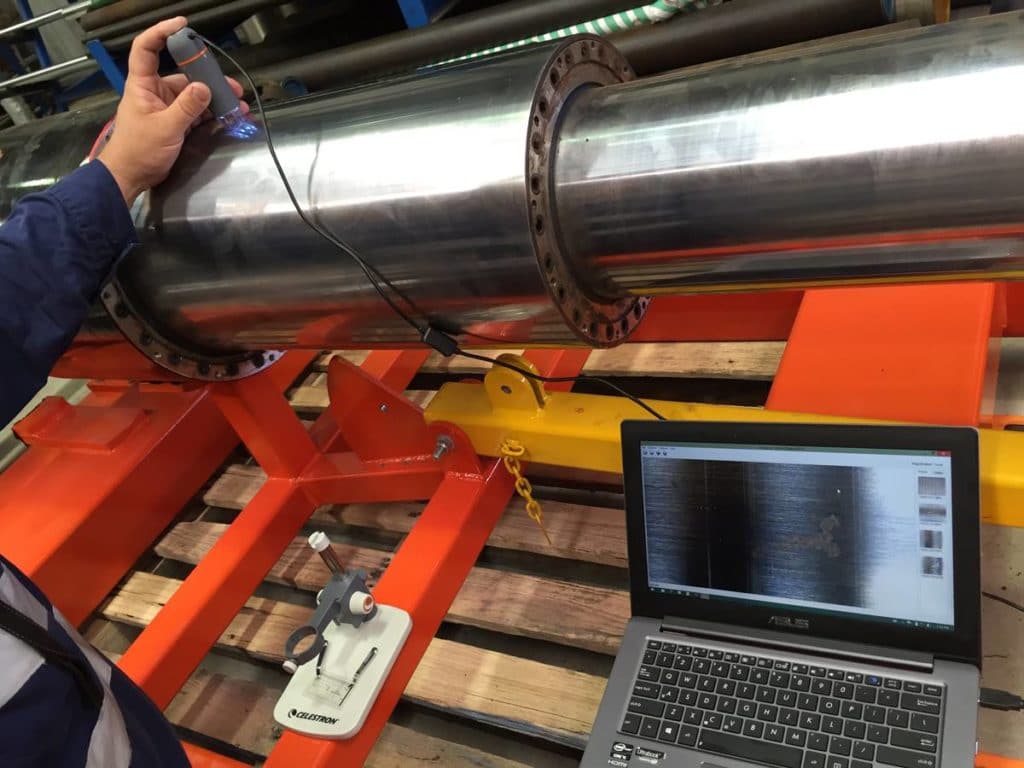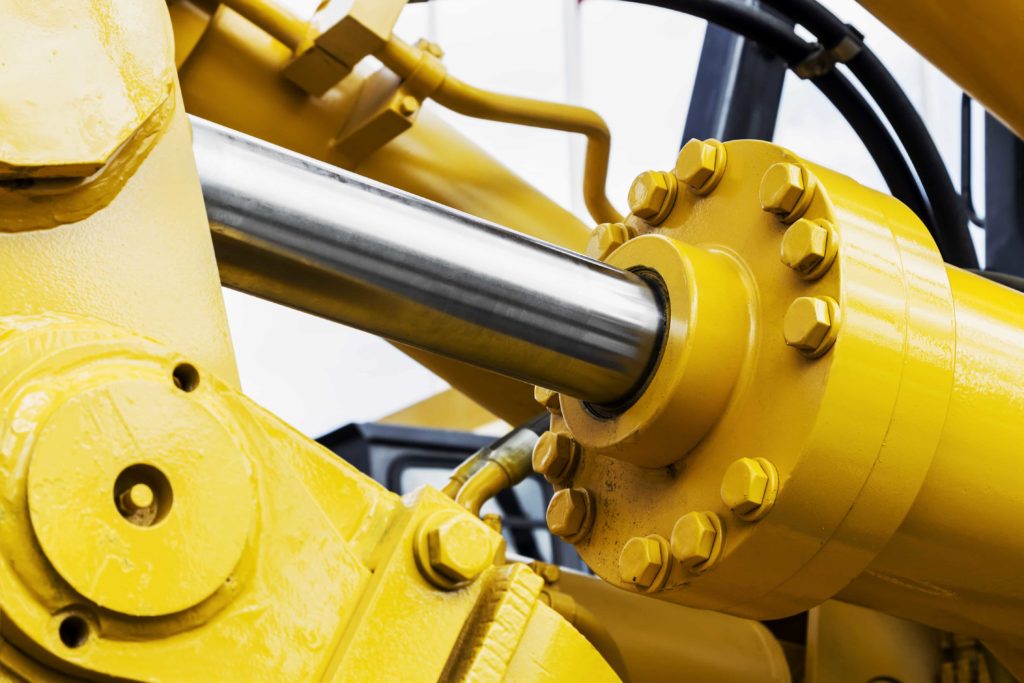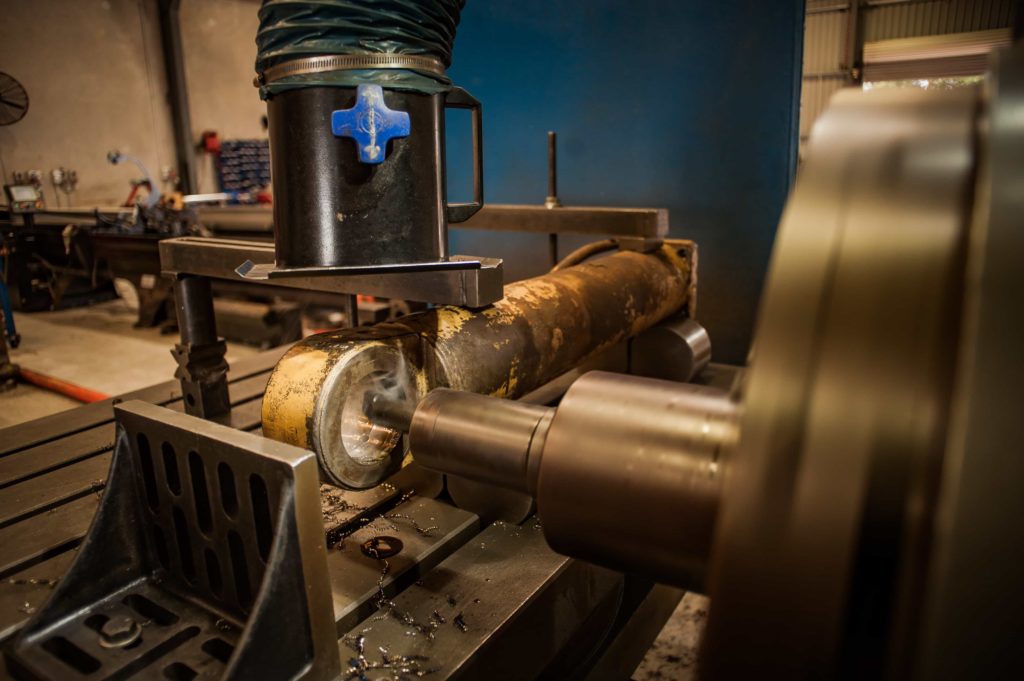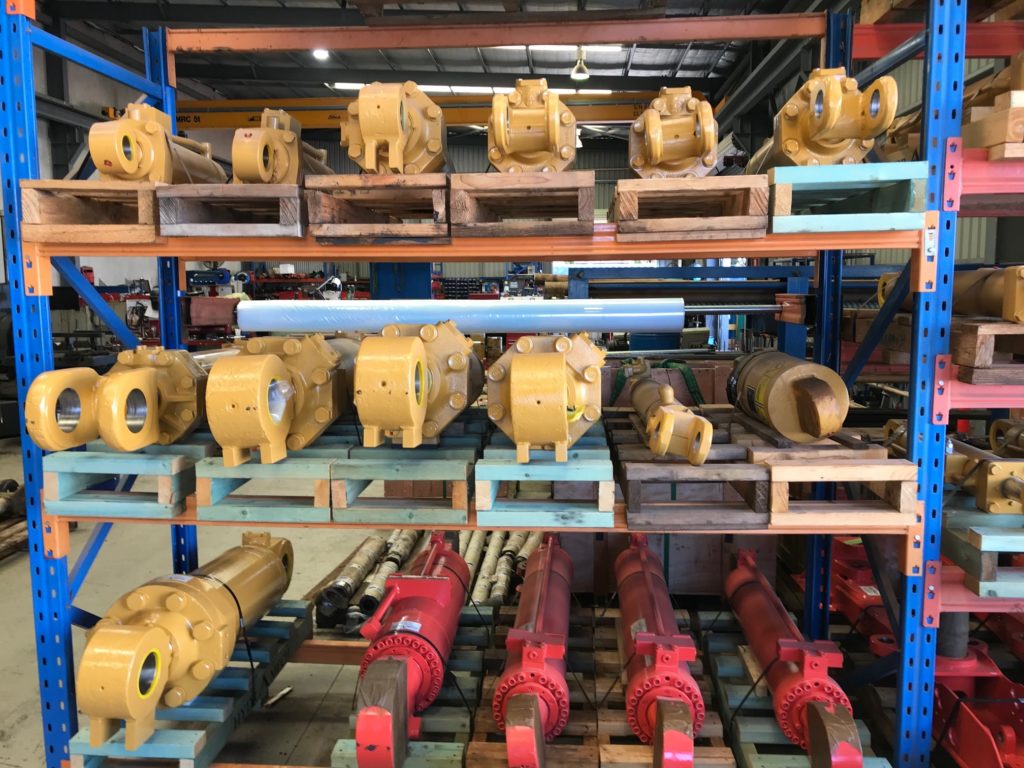Anyone who owns or operates machinery knows how vital it is to have healthy hydraulic cylinders. If a cylinder breaks down, your machinery will grind to a rapid halt. However, like every other machinery component, hydraulic cylinders are prone to wear and tear – the key is to recognise the signs of wear before a small problem becomes something bigger.
So, how do you know if your hydraulic cylinder needs repair? Let’s look at some of the common problems hydraulic cylinders experience and the best approach to ensure you minimise machinery downtime.
How to spot a damaged Hydraulic Cylinder
Hydraulic cylinders are complicated pieces of machinery with several working parts. If one of those parts fails, the whole cylinder can fail. Some common issues of hydraulic cylinders include:
- Contaminated fluid
- Worn bearings
- Bent piston rods
- Exposure to corrosive chemicals
Even something as minor as a damaged seal can trigger a chain reaction and cause the cylinder to break down.
While it’s recommended to book regular servicing, you should also keep an eye and ear out for these warning signs.
Unusual noises
If your hydraulic cylinder sounds more like a jackhammer, there may be air in the hydraulic fluid or not enough fluid reaching parts of the hydraulic circuit. This lack of lubrication can overheat components and burn seals.
Odd movements
Any unusual jerky movements could be a sign of too much friction inside the cylinder. If this is left untreated, it can cause bigger issues.
Irregular temperatures
Make sure you are fully aware of the maximum and minimum temperatures your hydraulic cylinder can operate at. Overheating can occur quickly and can cause lasting damage.
Increased energy usage
If the energy usage is increasing it means that your hydraulic cylinder is working harder – a clear sign that something is wrong. It can also put a strain on other parts of your machine which will force them to work harder than they need to.
Signs of wear and tear
Is the cylinder moving in a straight line? If you’ve noticed damage on a particular side of the cylinder it means that something is out of alignment. This must be rectified immediately as it will cause long-term damage.
Tips to avoid Hydraulic Cylinder repairs
To ensure you get the most life out of your hydraulic cylinders, here are five key tips to help minimise unwanted repairs.
Keep fluids clean
Contaminated oil can cause serious issues with hydraulic cylinders. If you have foreign particles moving back and forth within the cylinder, they can create overheating issues or physically damage the cylinder.
Regular checks ups
We’ve discussed the warning signs to look out for, however, if you want to ensure problems are picked up before they occur it’s best to schedule regular maintenance checks.
Use a qualified repairer
Hydraulic cylinders are a big investment for any sized business, so you should only trust a reputable hydraulics specialist to carry out repairs or supply parts.
Access to extra hydraulic cylinders
Sometimes changing over a cylinder before any issues arise is the best decision. Using Hydramech’s Drop N Swap system means you can drop off your hydraulic cylinder for a maintenance check-up and pick up a refurbished replacement part at the same time. That means no delays and minimal downtime.
Take care of all machinery components
For a machine to be working at its best, all parts need to be working in harmony. Whether it’s a pivot pin, ball joint or bracket, make sure you regularly check every part of your machinery for potential wear and tear.
If you need assistance with supply or servicing of your hydraulic cylinders, contact Hydramech.
We work with a wide variety of mining companies and cater for all the top machinery brands like Sandvik Mining, Epiroc (formerly Atlas Copco), Volvo Construction Equipment and Caterpillar.






